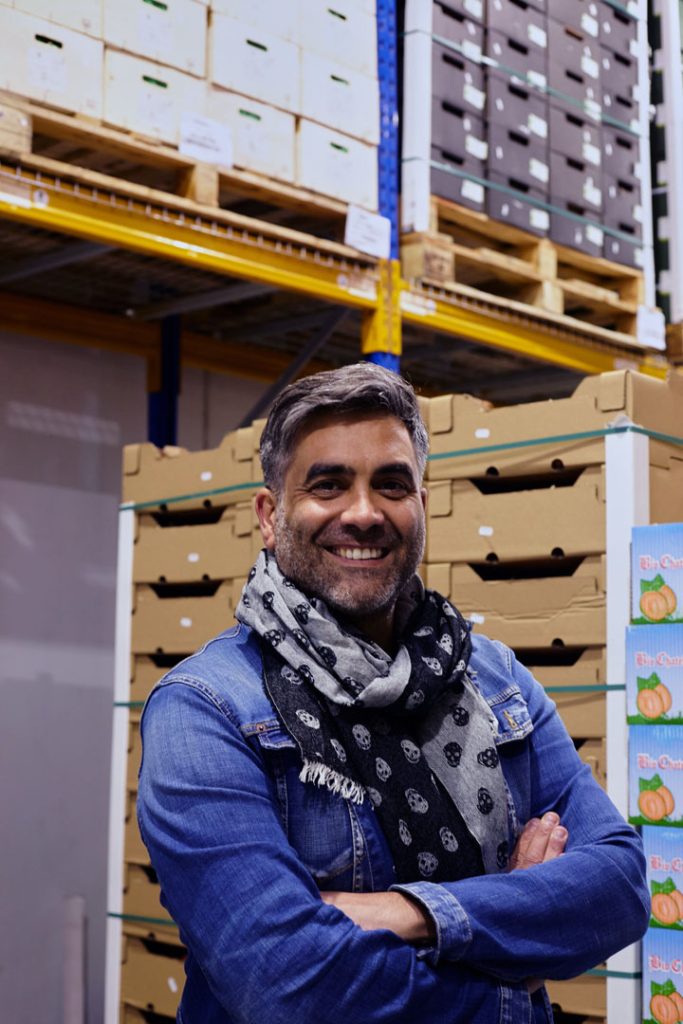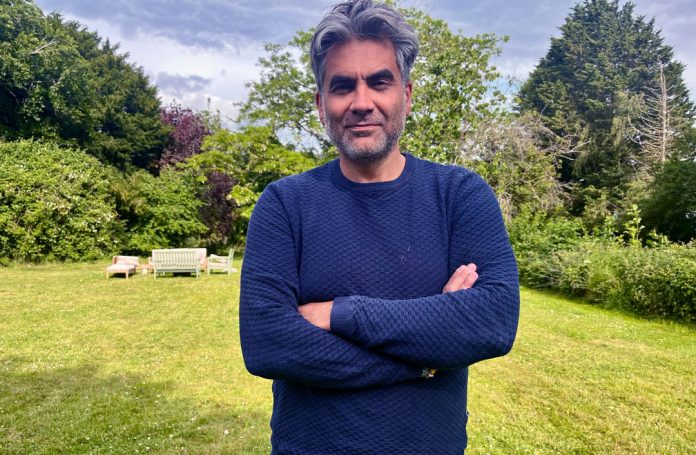Carl Saxton-Pizzie turned Wholegood into a £35 million fresh, organic food empire. But the relentless demands of CEO life pushed him beyond his limits – and forced a reckoning with what matters most
“Running a wholesale food business had never been part of the plan, mainly because I was so completely focused on being an actor. It’s what I’d done since I was eight, and I loved it. My mum had somehow, against all odds, got me into a theatre school in central London, hours away from the Brimsdown council estate where we lived. With my olive skin and big white teeth, I managed to cover the fees through a mix of grants, scholarships, and the money I earned from TV work (mainly toothpaste ads for Saudi Arabia!).
By the early 2000s, I was still technically an actor, but I’d already dabbled in various small, sole-trader businesses. Around the early-to-mid 2000s, I started collecting graffiti art, including what would become a significant haul of Banksy pieces. From there, I managed graffiti artists and set up a gallery, which became a huge part of my life.
Looking back. I had no real long term agenda or plan and had I known half of what I’d go through over the ensuing years I can’t say with confidence that I’d make the same choices. But while I had no grand plan, I knew something was missing. I was drawn to the idea of hard, physical work. My dad had spent his life as a bricklayer, and I saw so much value in that kind of graft, the smell of brick dust and sweat, something raw and real that said *this is work.
Wholegood came about simply through my commitment to eating organically. I was living in North London and struggling to find good-quality fresh organic produce, so I began buying in wholesale volumes and selling the surplus to acquaintances. I set up Wholegood as an organic B2B wholesaler with a single van, operating out of a disused building in Park Royal.
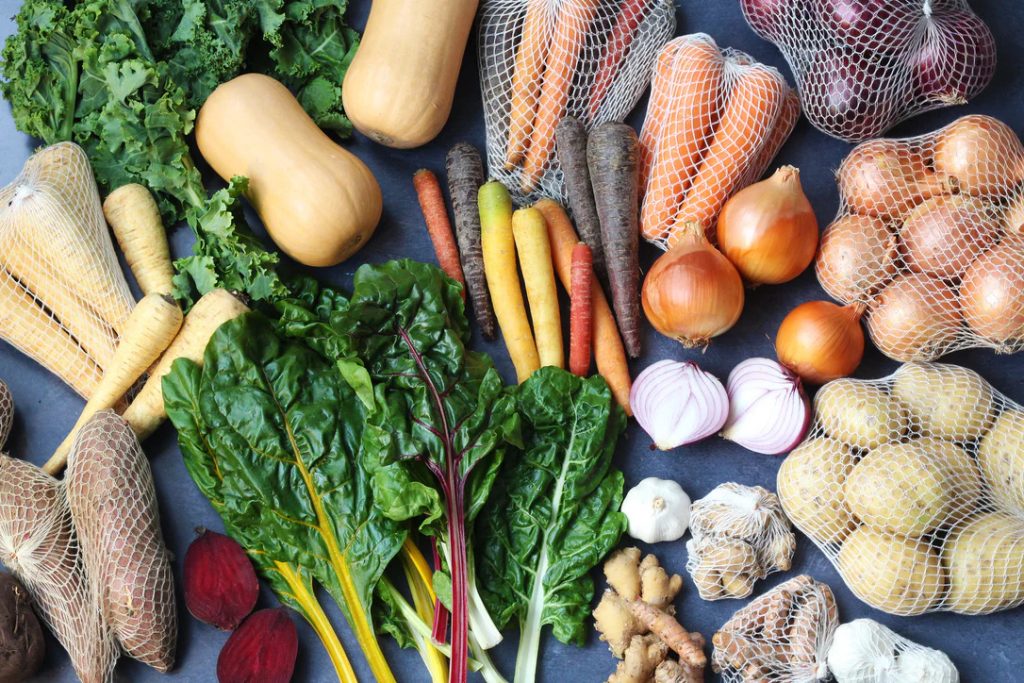
Bootstrapping Wholegood to a £7 million turnover business took about 10 years, and it was nothing but hard graft. But I saw that effort as a direct bridge to the brick dust and sweat of my dad’s work, and I felt real value in it. Then in 2019, as the business was approaching its 12th year, two terrible events unexpectedly boosted our business –something that has never sat easy with me but is part and parcel of how the world works. Firstly, a fellow, and much larger wholesaler had its warehouse destroyed in a fire, leaving more than £30 million of yearly business unfulfilled overnight. Wholegood became the logical alternative partner. Within four months, we took on 400 brands – a huge feat considering the sudden need for vastly increased warehousing and manpower.
It was a change in direction. Branded wholesale had been a tiny part of Wholegood, as our focus had always been fresh produce. Taking on that volume of brands was a risky fork in the road. The second event, of course, was the pandemic, when demand for fruit and veg delivery went stratospheric – for obvious reasons that I don’t need to go into.
In that time, our business exploded, and by the end of 2021, the business had grown to a £21 million turnover and we had won Specialist Wholesaler of the year at The Grocer Gold Awards twice in three years. Lockdown came just five months after the devastating fire of the wholesaler. It was overwhelming in many ways.
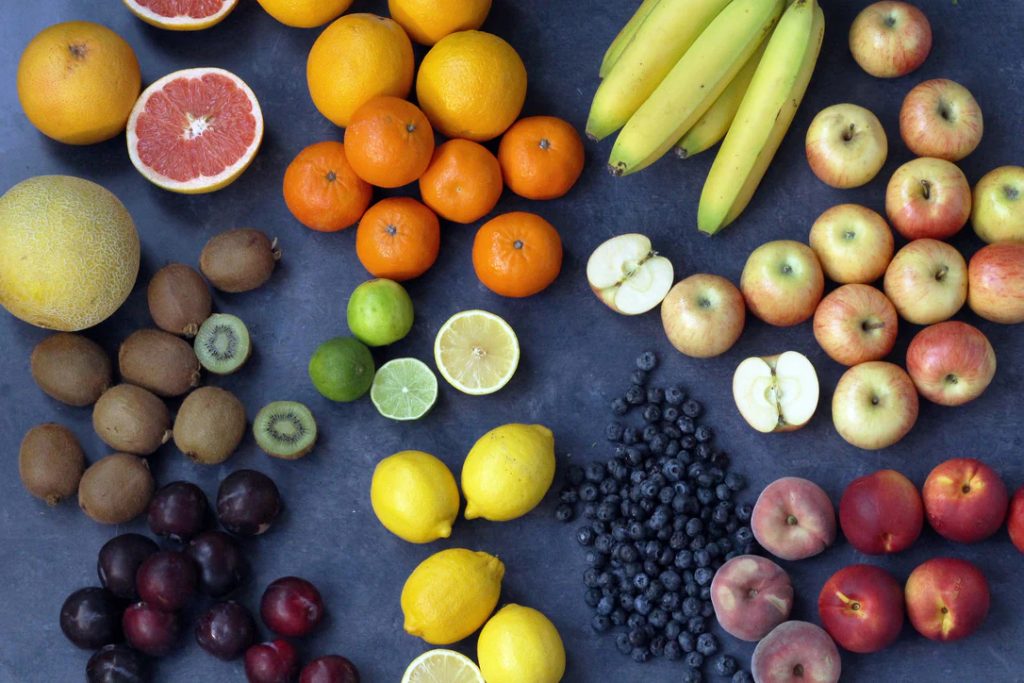
The weight on the shoulders of any founder or CEO is heavy, but I had built my business around hiring local people into our warehouse in Greenford, West London, and I felt a huge personal responsibility for their livelihoods. The growth of Wholegood meant we could employ more local people at a time when so many were losing their jobs.
By 2022, the toll on my mental health had reached breaking point, literally. I was forced to step back from the business after I hit a wall mentally, emotionally, and physically. I had allowed work to consume my entire life and I was utterly exhausted. As a team, we had worked relentlessly through Covid. It felt surreal knowing so many people were bored at home when we were almost never at home during that period.
When you run a supply chain-focused business that operates around the clock, there is no time to switch off. Add to that the unexpected external pressures, and the toll simply became too much.
In February 2022 I finally snapped. I just couldn’t go to work. I’d head there but be unable to get out of the car, and then I’d just drive aimlessly somewhere between home and work, sitting there wondering what I should do, who I should call. I was completely paralysed. I had to radically change my life, and fast. My wife stepped in and took control, moving us out of London and into her mother’s home in Essex. That decision certainly saved me, and probably saved the business too. It took me a year to recover, and during that time I installed a CEO and a CFO, stepping into a growth-focused role instead.
Talk of mental health in business is more common these days, but it’s still far less open than it should be. And I understand why, showing that level of vulnerability can feel like a dangerous line to walk when it comes to your career. But all we’re doing by staying silent is leaving those who follow us on the same horrendous path of workplace burnout less prepared, less knowledgeable, and less comfortable asking for help. My entire team were hugely understanding and supportive.
In early 2024 I came back as CEO, this time with my eyes wide open to the need for balance. The business had been hit hard by all the post-pandemic economic challenges, even though it had reached sales of around £35 million by the end of 2023. This time, the external circumstances worked against us: a major client was bought and taken in a new direction, and another went into administration owing us half a million pounds. Very quickly, I put an aggressive turnaround plan in place with key stakeholders and my management team, including halving the warehousing and reducing the headcount by 30 percent – down to 100 staff. It was painful and felt personal but was absolutely essential.
Despite breaking even by Autumn 2024, the business had been overwhelmed with debt. Expansion into new warehousing with huge rents, created by the cost of space during the pandemic was suffocating the business, along with all the other costs of something so large.
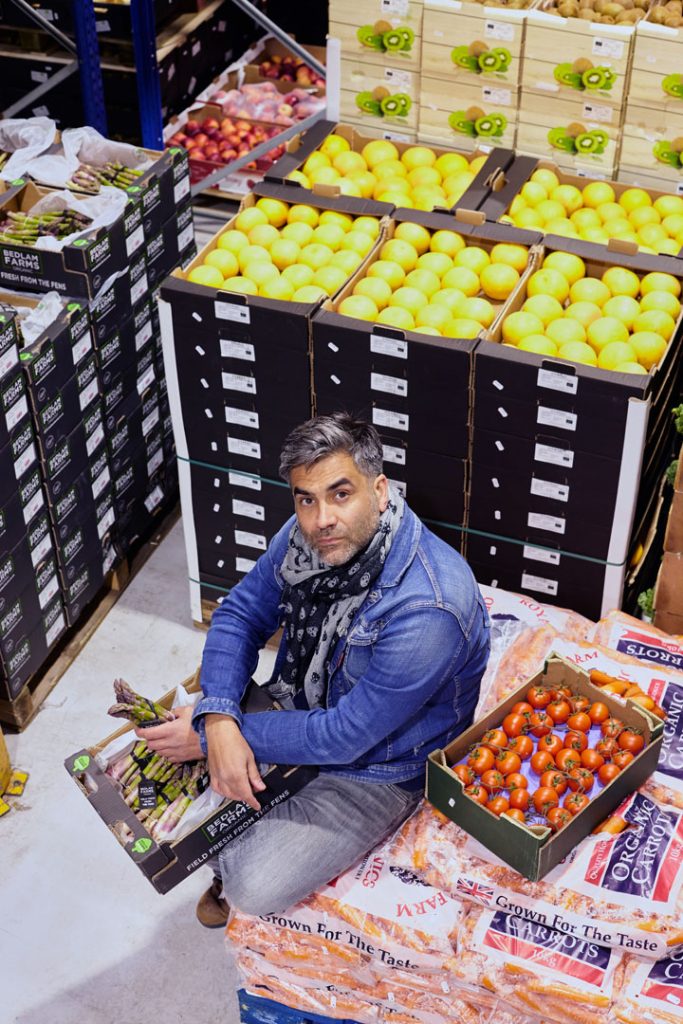
I led Wholegood through a carve-out, refocusing the business on its fresh produce roots in its original warehouse and releasing us from the large warehousing taken during Covid. This avoided the total liquidation of Wholegood, and the loss of 100 jobs. Securing the money to be able to do that deal and continue the business with a focus on its original core was extremely challenging, with a deal secured just seven days before Christmas.
The parts of the business that I secured would leave us with a £20 million turnover, but with an appropriate cost base to match. The fresh produce business was what I started, what I truly believed in. Getting through that was also testament to the entire team. It was scary for all involved but everybody supported the mission, got their heads down and worked through it, calmly and dilligantly. It was a new experience for me and my entire senior management team but we all leaned in to it and when you have a solid team behind you and you believe in what you are doing its remarkable what can be achieved.
Today we are back on a more steady footing, and I have found a way to make work and life complement each other a little better. Experiencing struggles as a CEO was hugely eye-opening: having founded the business and grown it from the ground up, I felt responsible for it and everyone in it. I was the captain of this ship and subconsciously felt that the responsibility to keep it afloat was mine and mine alone. With no one above me to give me permission to stop and take some time out, which would have required me to hide my struggles less effectively, I pushed away any warning signs, kept my head down, and powered on.
I still struggle with balance, but I’ve learned that life is a work in progress and I’m not defined solely by my job. Success can look very different from one day to the next, and sometimes getting through relatively unscathed is worth a lot more than many people realise.
We are now widening our customer base, supplying more independents and trying to find the widest audience possible for our produce, Relocating the business to New Covent Garden Market has also been a great way of finding a new audience, being an Organic Wholeasaler in London’s bustling fruit and veg market is a great way of connecting with new customers.
Regardless of the ups and downs, the overall reason for Wholegood existing has remained the same – to make it easier for people to access healthier and more sustainably produced food. That part hasn’t changed, if anything its more important now than it’s ever been.”
Carl Saxton-Pizzie is the founder and CEO of Wholegood
